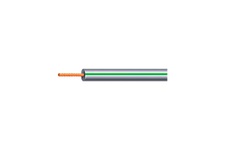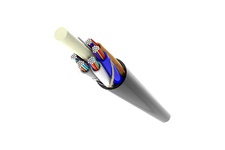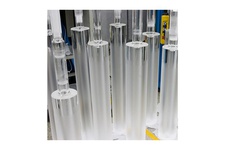| English | Select | |
| 한국어 | Select | |
| Русский | Select |

AC submarine cables are widely used for mid-to-long-range application at medium-to-extra high voltage grade. LS Cable & System can offer both single- as well as three-phase AC cables. They can be easily connected to the onshore AC power grid. Commonly, extruded cross-linked polyethylene (XLPE) is used as conductor insulation for reliable operation and maintenance, simple connection and repair, and due to its advanced chemical and electrical features.
Types and Purposes
• Submarine cables for power connection
- Connection among countries
- Connection between islands and mainland
• Submarine cables for wind power
- External network submarine energy cables (offshore substation toonshore substation)
- Internal network submarine energy cables (between offshore wind turbine power generators and -offshore or onshore substation) (these are referred to as “infield” or “array” cables).
• Oil & Gas
- External network submarine energy cable (offshore oil & gas platform to onshore substation)
- Internal network submarine energy cable (between offshore oil & gas platforms)
Benefits
LS Cable & System has the capability to produce long-length AC submarine cables (without the need to joint two lengths offshore), as the company possesses facilities and technology required to manufacture, factory-joint, layup (three cores), and store long-length MV and (E)HV AC submarine cables. XLPE insulated submarine cables hold many benefits, most notably, there is no risk of environmental contamination, as is given when an oil-insulation based cable is damaged.
Main features
• Mid-to-long-distance transmission (≤100km)
• Maximum voltage: 400kV
• Maximum conductor size: 2,500mm2 (single core)











































































